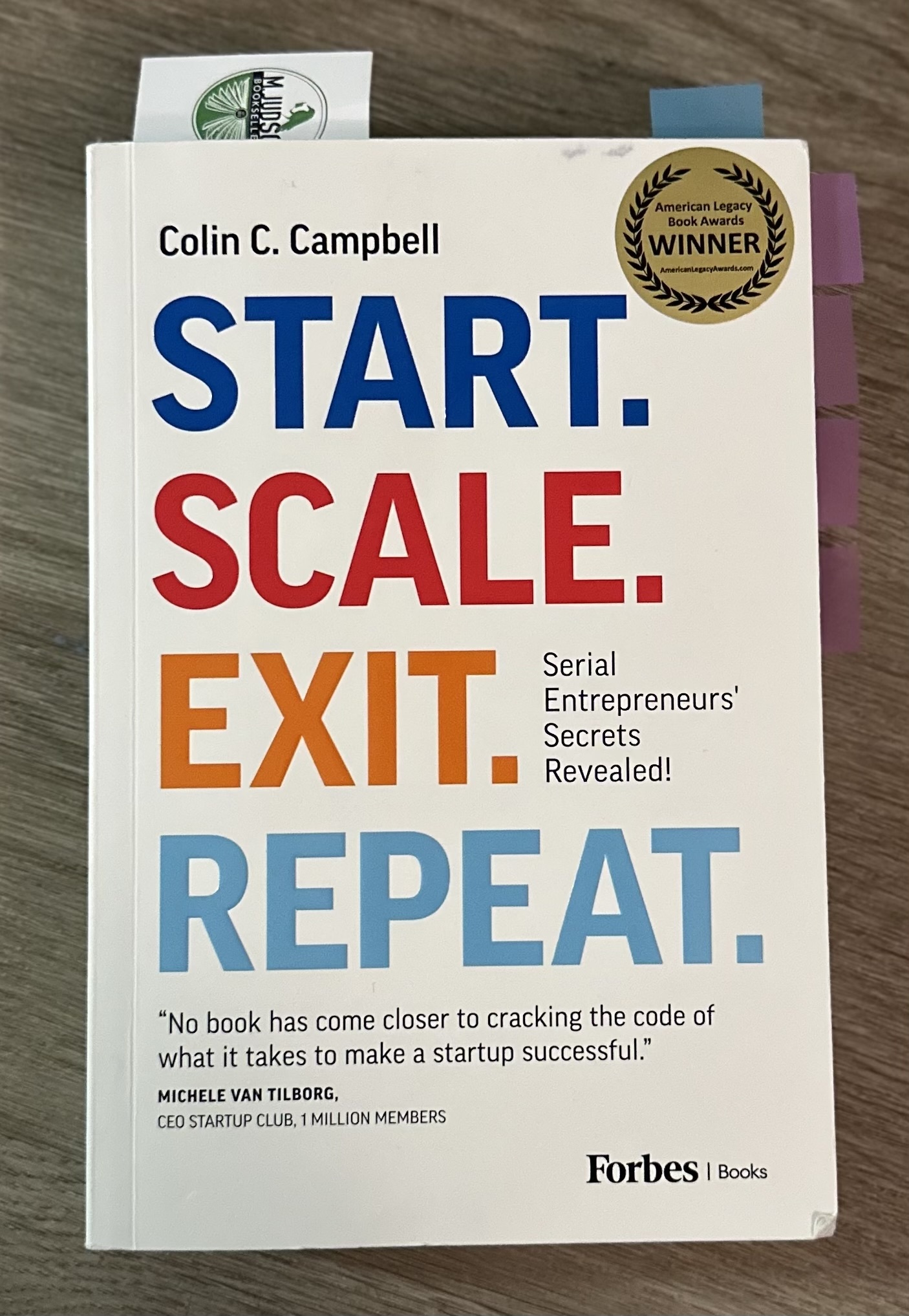Chapter 29 Breakdown: The Problem with Venture (Vulture) Capital — When Funding Comes at the Cost of Freedom
Section B3: Money | Start. Scale. Exit. Repeat. Series
Resilience Repurposed Blog by Brent Parker
Intro: The Price of Money Isn’t Always on the Check
Venture capital looks glamorous—until it isn’t. In Chapter 29 of Start. Scale. Exit. Repeat., Colin Campbell (2023) strips the shine off VC funding and calls it what it often becomes: “vulture capital.”
Only 0.05% of startups ever land VC money. And for those who do, the cost isn’t just equity—it’s direction, control, and in many cases, the soul of the company. This chapter dives deep into the high-stakes trade-offs founders often overlook when chasing big checks from institutional investors.
🧠 Key Lessons from Chapter 29
✅ 1. Venture Capital Isn’t Free — It’s a Trade of Control for Cash
Taking VC isn’t just about getting money—it’s about giving away decision-making power. Campbell reminds us that investor expectations become your new compass. Their risk/reward equation overrides your vision unless you’ve structured the deal smartly (Campbell, 2023, p. 216).
✅ 2. Founders Often Don’t Realize What They’ve Lost Until It’s Too Late
Once VC is on your cap table, you’re accountable to growth at all costs—even when that’s not what your business actually needs. Campbell explains how founders can get trapped chasing metrics that don’t match their mission (2023, p. 217).
✅ 3. Case Study: WeWork and the Dangers of Overfunding
Campbell uses WeWork as a cautionary tale of what happens when reckless scaling is fueled by investor dollars and not actual revenue. Too much funding, too soon, can collapse a business faster than bootstrapping ever could (2023, p. 218).
✅ 4. VC Is Not Evil, But It Must Be Strategic
“There’s a time and place for VC,” Campbell writes, “but it must be strategic.” Founders should pursue VC only when their model requires hypergrowth and they’re ready for the pressure that comes with it (2023, p. 220).
✅ 5. Many Great Businesses Should Never Take VC
The chapter closes with an important distinction: some businesses are meant to scale sustainably, not explosively. Campbell encourages mission-driven founders to explore alternatives like grants, loans, revenue financing, or simply bootstrapping with a smart plan (2023, p. 222).
💡 Final Takeaway
Venture capital is a tool—not a trophy. If you don’t fully understand what you’re giving up, don’t take the deal—no matter how tempting it looks on paper. Money can either accelerate your mission or hijack it. Choose wisely.
🔁 Coming Next
Chapter 30 – The Golden Rule of Spending: Spend It Like It’s Your Own
We’ll explore the foundational principle of responsible financial leadership—one that separates good founders from great stewards of capital.
💬 Share This With a Future Founder
Know someone chasing VC for the wrong reasons? Send them this reflection or hand them the book with a sticky note that says:
“Read Chapter 29 before signing anything.”
📬 Subscribe to Resilience Repurposed
Like where this is going?
Get weekly reflections, maker strategies, and behind-the-scenes insights from a veteran-led, sustainability-driven venture.
👉 Subscribe here
📚 References
Campbell, C. C. (2023). Start. Scale. Exit. Repeat. Unicorn Publishing.
